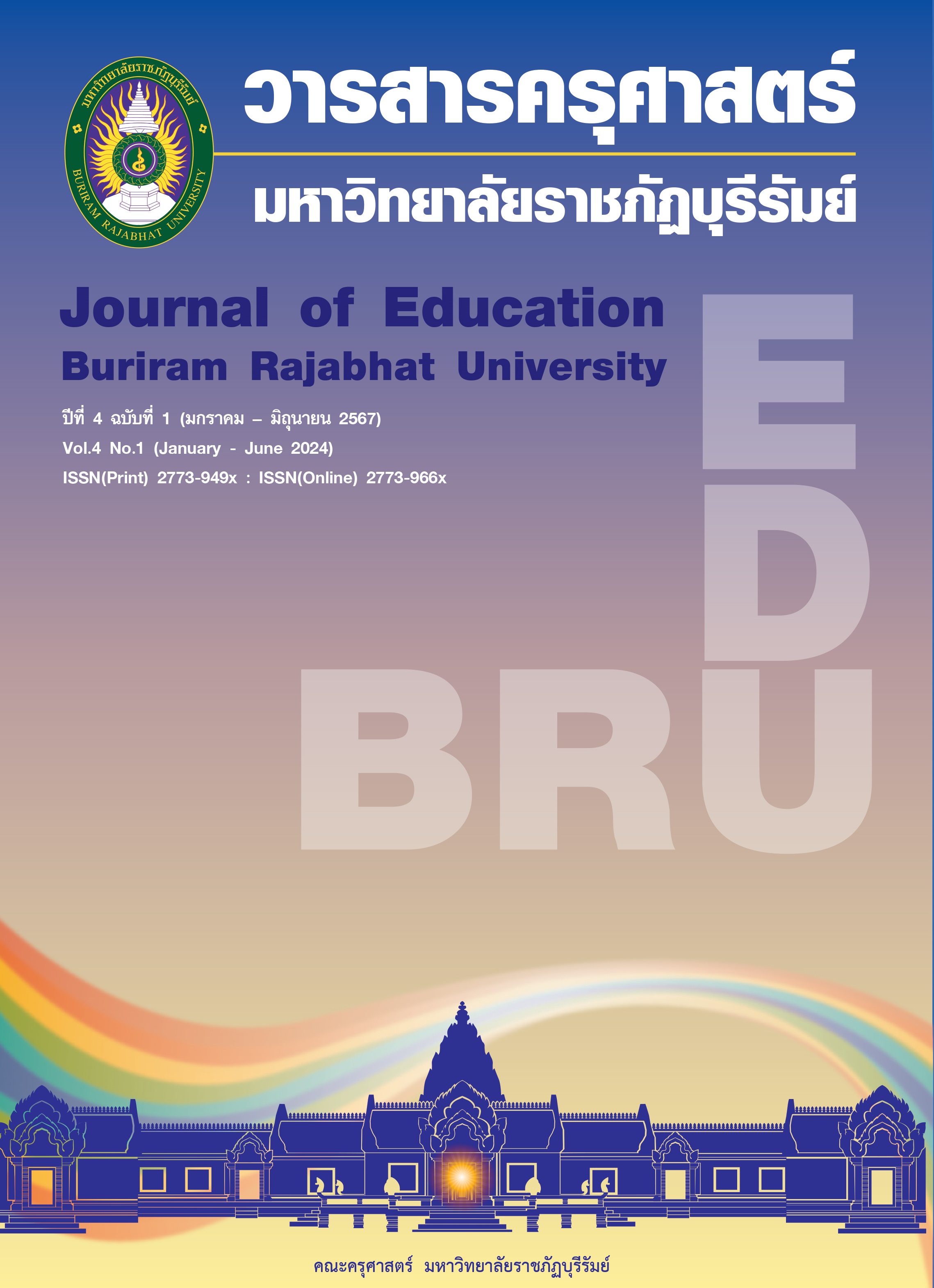Time Management Skills for Success
Main Article Content
Abstract
This article aimed at the presentation of the time management for success. It was the regulation and control of the work practices to achieve the time and objectives regulated, spending the time effectively and decreasing stress. The important time management skills covered the self-management, staff management, self-life management and family management. These skills were important and necessary for the executives in the digital age with technology to facilitate the convenience for the fast management. Also, these skills can help the good time allocation affecting to derive complete work quality beneath the time limitation. Th executives with the good time management should have the working plans, working time schedule, the importance sequences before and after working and the self-control for disciplines. The mentioned guidelines enabled the effective management and effectiveness to obtained the public and self-advantages.
Downloads
Article Details
บทความที่ได้รับการตีพิมพ์ลิขสิทธิ์เป็นของวารสารครุศาสตร์ มหาวิทยาลัยราชภัฏบุรีรัมย์ อนุญาตให้เผยแพร่เพื่อการศึกษาและวิจัย ในวงการวิชาการ ไม่อนุญาตการใช้ประโยชน์เพื่อการแสวงหากำไร
ข้อความที่ปรากฏในบทความเป็นความคิดเห็นส่วนตัวของผู้แต่ง ซึ่งวารสารครุศาสตร์ มหาวิทยาลัยราชภัฏบุรีรัมย์ ได้ประเมินคุณภาพตามหลักวิชาการ ผลกระทบอันเกิดจากความคิดเห็นของผู้แต่งเป็นความรับผิดชอบของผู้แต่งเอง
References
เกรียงศักดิ์ เจริญวงศ์ศักดิ์. (2557). บริหารเวลาเพื่อความสำเร็จ. กรุงเทพฯ: ซัคเซสมีเดีย จำกัด.
เกรียงศักดิ์ เจริญวงศ์ศักดิ์. (2561). ใครว่าไม่มีเวลา Take Your Time. กรุงเทพฯ: ซัคเซส พับลิชชิ่ง.
ชัยเสฏฐ์ พรหมศรี. (2561). ภาวะผู้นำสำหรับผู้บริหารองค์การ: แนวคิด ทฤษฎีและกรณีศึกษา. กรุงเทพฯ: ปัญญาชน.
ทวีวรรณ กมลบุตร. (2555). จัดการเวลาให้มีมากกว่า 24 ชั่วโมง ไม่ยาก. นนทบุรี: ธิงค์ บียอนด์ บุ๊คส์.
นัทนิชา หาสุนทรี. (2560). การเมืองการปกครองไทย. กรุงเทพฯ: มหาวิทยาลัยราชภัฏสวนสุนันทา.
ปราชญา กล้าผจัญ. (2543). 88 ลู่ทางสู่ความสำเร็จของนักบริหาร. (พิมพ์ครั้งที่ 3). กรุงเทพฯ: ข้าวฟ่าง.
พระธรรมปิฏก (ป.อ. ปยุตฺโต). (2544). พุทธวิธีในการสอน. (พิมพ์ครั้งที่ 8). กรุงเทพฯ: โรงพิมพ์ บริษัท สหธรรมิก จำกัด.
เมธ์วดี กาญจนสรวง. (2558). การวิเคราะห์สภาพปัญหาและแนวทางการจัดการเวลาของครู: การวิจัยแบบผสมวิธี. วารสารอิเล็กทรอนิกส์ทางการศึกษา, 10(1), 274-288.
วิเชียร วิทยอุดม. (2560). องค์การและการจัดการ Organization & Management. นนทบุรี: ธนธัชการพิมพ์ จำกัด.
ศิริสุดา แก้วมณีชัย. (2563). รูปแบบความสัมพันธ์โครงสร้างเชิงเส้นของปัจจัยที่ส่งผลต่อการบริหารเวลาอย่างมีประสิทธิภาพของผู้บริหารสถานศึกษา สังกัดสำนักงานเขตพื้นที่การศึกษามัธยมศึกษาในภาคตะวันออกเฉียงเหนือ. วารสารครุศาสตร์ปริทรรศน์ มหาวิทยาลัยมหาจุฬาลงกรณ์ราชวิทยาลัย, 7(1), 242-253.
เศรษฐพงศ์ มะลิสุวรรณ. (2561). การเปลี่ยนผ่านทางดิจิทัลของประเทศไทย เพื่อนำไปสู่ Thailand 4.0วารสารวิชาการ กสทช. 2(ธันวาคม), 23.42.
สํานักงานเลขาธิการสภาการศึกษา. (2560). แผนการศึกษาแหงชาติ พ.ศ.2560 - 2579.กรุงเทพฯ: พริกหวานกราฟฟิค.
สำนักงานปลัดกระทรวงมหาดไทย. (2553). การบริหารเวลา. กรุงเทพฯ: สถาบันดำรงราชานุภาพ สำนักงานปลัดกระทรวงมหาดไทย.
สุทธิชัย ปัญญโรจน์. (2556). การตลาดเชิงสร้างสรรค์. วารสาร TPA News, 119(7), 43-44.
อาภรณ์ ภู่วิทยพันธุ์. (2553). กลยุทธ์การพัฒนาทรัพยากรมนุษย์ : Strategic Human Resource. Devel-opment. (พิมพ์ครั้งที่ 2). กรุงเทพฯ: พิมพ์ดี.
Drucker, Peter F. (2002). The Discipline of Innovation. Harvard Business Review. August, 95-103.
Hoy & Cecil MisKel. (2008). Educational Administration Theory Research and Practice (8th ed.). New York: Mc Graw-Hill Inc.
Swanson, R.A. (2001). Human resource development and its underlying theory. Human Re-source Development International, 4(3), 299-312.


